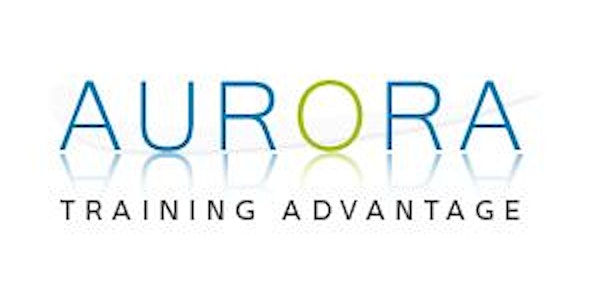
Fundamentals and Best Practices for Handling Taxation of Multistate Employees
This webinar discusses the handling of state taxes, wage and hour law, and garnishments when an employee lives in one state and works ...
Date and time
Location
Online
Refund Policy
About this event
- Event lasts 1 hour 40 minutes
Live Webinar or Recording
May 22, 2025, 12:00 pm - 1:40 pm Eastern
Credit: CPE: 2, HRCI: 1.5, SHRM: 1.5, RCH: 1.5, ATATX: 1.5, ATAHR: 1.5, ATAPR: 0.75 (Live Only)
This webinar discusses the handling of state taxes, wage and hour law, and garnishments when an employee lives in one state and works in another or works in two or more states simultaneously. Includes determining liability as an employer, reciprocal agreements, resident and nonresident taxation, Form W-4 equivalents, state unemployment insurance, wage and hour law requirements and garnishment withholding.
Background:
Complying with tax codes, withholding requirements, and deposit schedules is already a challenge when dealing with just one state and the IRS. For multistate employers, this complexity increases exponentially, especially in a post-pandemic environment where remote work and employee mobility are common. Payroll professionals must navigate a maze of varying state rules, reciprocal agreements, residency classifications, and reporting requirements—all of which can drastically differ. Questions around which state’s taxes to withhold, where to pay unemployment insurance, and how to handle state disability deductions must often be resolved on a case-by-case basis.
Many employers mistakenly believe they can simplify the process by paying taxes and SUI to the state where an employee lives. However, this approach often fails under audit, as most states require taxes to be withheld based on where the work is performed. Navigating multistate payroll compliance involves far more than just taxes—it also includes understanding wage and hour laws, such as varying minimum wages and overtime rules. This webinar aims to equip employers with the knowledge to handle these challenges effectively and remain compliant across all jurisdictions.
Your Benefits For Attending:- Gained knowledge of the requirements under wage and hour laws when an employee works in two or more states
- Learned how to handle garnishment withholding for a multistate employee
- Understand how to determine state withholding liability and how it is affected by the residency of the employee
- Gained knowledge in reciprocal agreements and the difference between taxing residents on their worldwide income and nonresidents on the income earned within the state
- A better knowledge of the three calculation methods permitted to determine taxable wages for state income tax including the volume of business ratio method and the time basis method
- A clear understanding of the basics of the four-factor test used to determine the payment of state unemployment insurance
- How to determine state withholding liability
- Who is a resident
- How reciprocal agreements affect taxation of wages
- Resident and nonresident taxation policies
- The four-factor test for state unemployment insurance
- Income and unemployment taxation of fringe benefits
- What wage and hour laws must be followed
- How to handle income and unemployment insurance taxation for employees working in multiple states
- How working in multiple states could affect withholding for garnishments
- Withholding requirements when an employee is in a state temporarily
- Which states require the use of their own Withholding Allowance Certificate, which states allow either theirs or the Form W-4, and which states do not have a form
- Reporting wages for multistate employees on Form W-2
- Payroll Executives/Managers/Administrators/Professionals/Practitioners/Entry Level Personnel
- Human Resources Executives/Managers/Administrators
- Accounting Personnel
- Business Owners/Executive Officers/Operations and Departmental Managers
- Lawmakers
- Attorneys/Legal Professionals
- Any individual or entity that must deal with the complexities and requirements of paying employees in multiple states
Why Attend: Whether you're navigating multistate payroll for the first time or looking to sharpen your compliance strategy, this webinar offers essential guidance to help you stay ahead. Gain practical, actionable insights into complex tax and labor regulations, avoid costly mistakes, and ensure your payroll processes are audit-ready across every state your employees work or reside in.
Guest Speaker: Vicki M. Lambert, CPP - The Payroll Advisor
Level: Basic
Format: Live Webcast
Field of Study: Accounting
Program Prerequisites: NoneAdvanced Preparation: NoneAurora Training Advantage is registered with the National Association of State Boards of Accountancy (NASBA) as a sponsor of continuing professional education on the National Registry of CPE Sponsors. State boards of accountancy have final authority on the acceptance of individual courses for CPE credit. Complaints regarding registered sponsors may be submitted to the National Registry of CPE Sponsors through its website: www.nasbaregistry.org.
For more information regarding administrative policies such as complaint and refund, and cancellation please contact our offices at 407-542-4317 or training@auroratrainingadvantage.com.
This program has been approved for credit hours through the HR Certification Institute. For more information about certification or recertification, please visit the HR Certification Institute website at www.hrci.org.
Aurora Training Advantage is recognized by SHRM to offer Professional Development Credits (PDCs) for the SHRM-CPSM or SHRM-SCPSM. For more information about certification or recertification, please visit www.shrmcertification.org.
Aurora Training Advantage is an approved provider through the American Payroll Association. To receive credit through the American Payroll Association for this program you MUST attend the program in its entirety.
Aurora Training Advantage is offering continuing education points designed to recognize dedication to training and excellence in accounting.
Aurora Training Advantage is offering continuing education points designed to recognize dedication to training and excellence in human resources.
Aurora Training Advantage is offering continuing education points designed to recognize dedication to training and excellence in payroll.